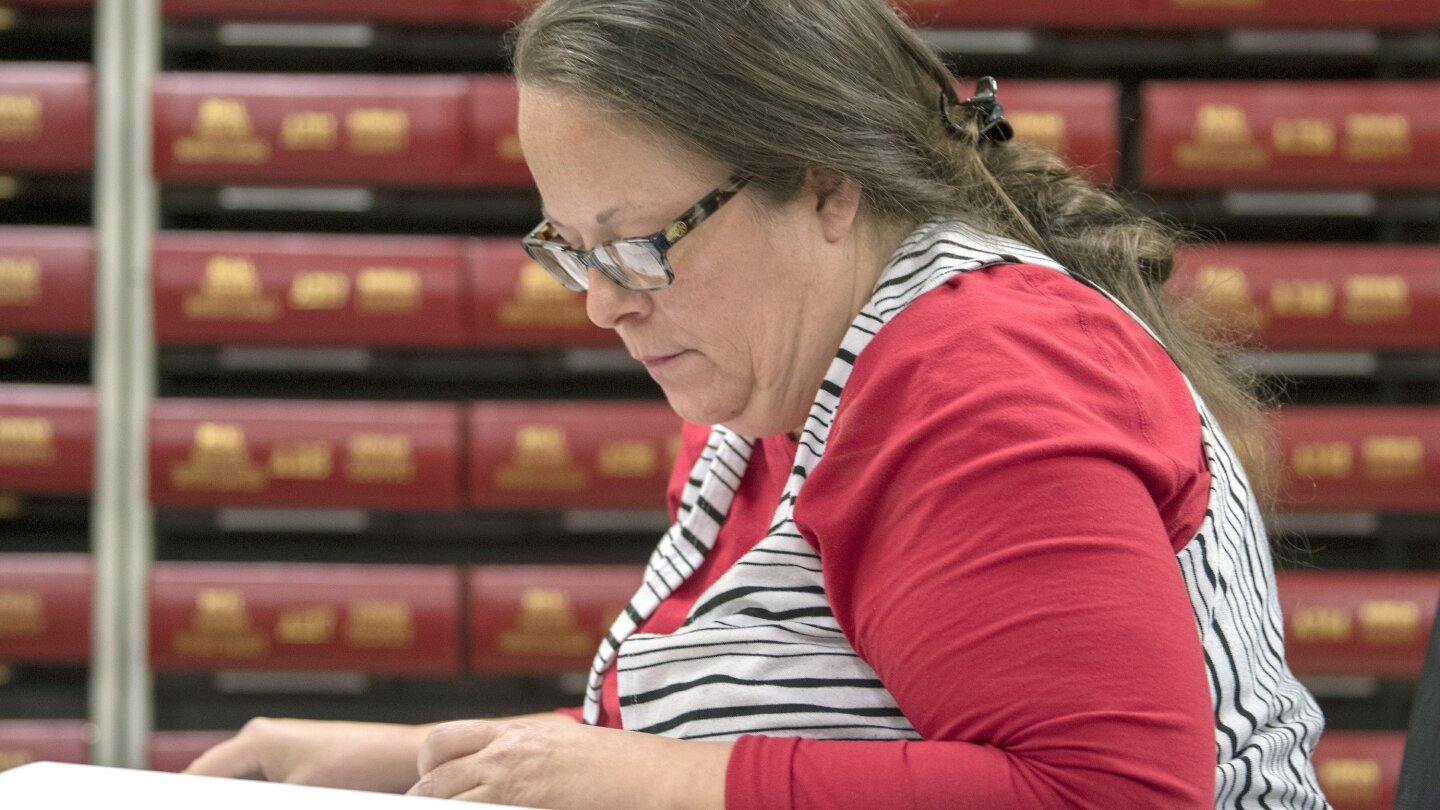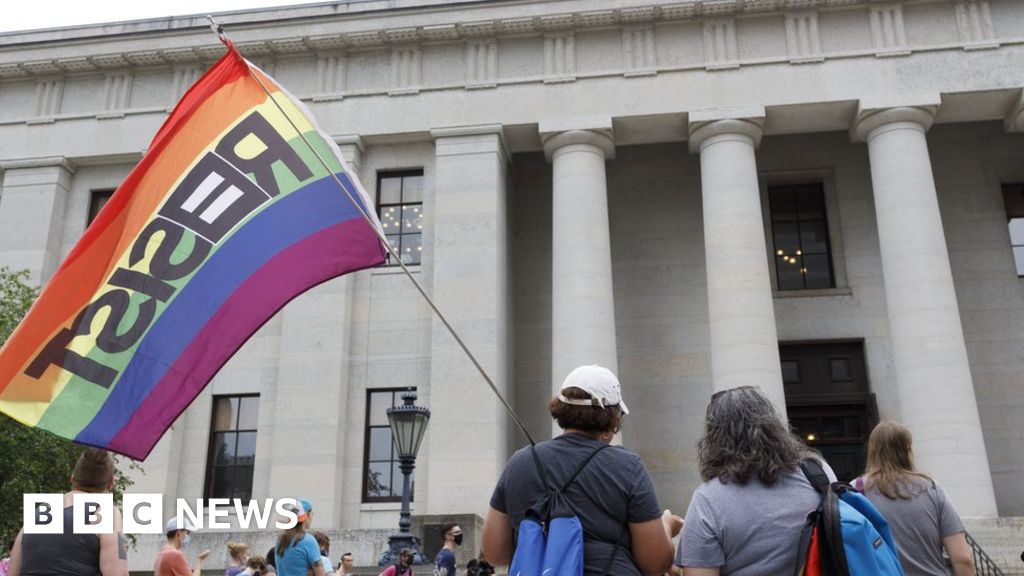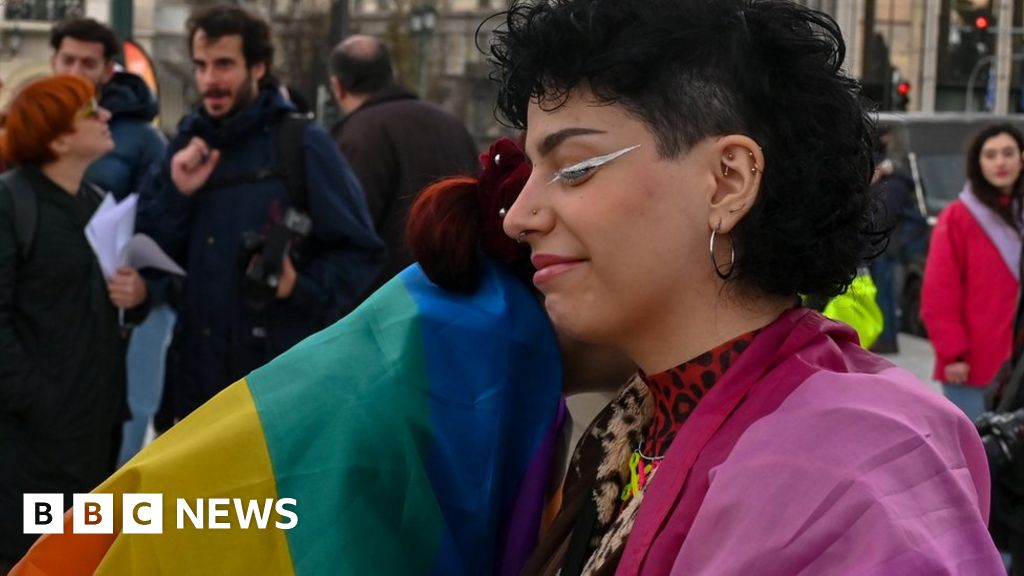I'd like to say this is shocking, but for Italy it's par for the course.Life in Italy for LGBQT+ families.

‘The state says our kids don’t exist’ - how LGBT life is changing in Italy
Italy is removing children from registers and stopping surrogacy abroad in new rules affecting same-sex couples.www.bbc.com
You are using an out of date browser. It may not display this or other websites correctly.
You should upgrade or use an alternative browser.
You should upgrade or use an alternative browser.
LGBQT+ News & Articles
- Thread starter PrimalxConvoy
- Start date


Japan court says requiring surgery for gender switch unconstitutional
A Japanese court has said that a law requiring surgery to switch genders on a family registry is unconstitutional in a ruling on a case involving a transgender man in central Japan, his lawyers said Thursday.

Japan's top court says surgery need for gender change unconstitutional
Japan's Supreme Court on Wednesday declared in a historic ruling that a law requiring surgery to remove a person's reproductive capabilities to register a gender change was unconstitutional in a case brought by a transgender woman.

Growing number of Japan municipalities ban outing LGBT individuals
A growing number of Japanese municipalities have introduced ordinances banning the outing, or revealing, of a person's sexual orientation or gender without their consent, researchers and officials said Sunday.
Unfortunately...
"...Japan is the only G7 country not to fully recognise same-sex couples or offer them clear legal protection, leaving the country's LGBTQ+ community feeling vulnerable and nearly invisible..."

Marriage equality eludes Japan's same-sex couples
Japan offers same-sex couples no clear legal protection, leaving them feeling nearly invisible.
Last edited:
Sad news in India, but perhaps a small silver-lining?

 www.theguardian.com
www.theguardian.com

India’s supreme court declines to legally recognise same-sex marriage
Judges say decision should be made by parliament but stress that such unions should not face discrimination
Apparently, the clinic below refused all unmarried women treatment.

 english.kyodonews.net
english.kyodonews.net
And some people have the gall to call Japan a "developed" country...

Japan hospital denies LGBT woman support for IVF pregnancy
An LGBT advocacy group urged the Japanese government on Tuesday to ensure all pregnant women have access to the same level of medical support after a woman in a same-sex relationship who became pregnant through in-vitro fertilization was denied treatment at a hospital.
And some people have the gall to call Japan a "developed" country...
I don't feel comfortable calling Japan, specifically, out on this sort of garbage while being an American. They are only a couple of steps behind where we are currently on LGBGTQ+ issues and we(the US) seem to be backsliding a bit lately.
Japan’s a mass of contradictions from a Western European and North American perspective. Advanced and developed on many levels (and they have universal healthcare!), awful on gender, LGBTQ and racial equality, among other sensibilities. Although, to be honest they’re more developed on some of those issues than certain Central-Eastern Europe countries.
That's not really progression. Japanese anime is simply escapism. To use that anime as proof of "progression" is like using "Dumbo" as proof that America was "fine with drugs" due to the "pink elephants" scene.Japan used to be more progressive than the West. Remember the same-sex couple on Sailor Moon (I think that's what show it was) that got turned into siblings in the English dub?
About twenty years ago, I had the "honour" of teaching an old man English in Japan. He proceeded to tell me that "Japan has no homosexuals". When I asked him to then explain to me about Nichome in Tokyo, he replied "That's full of foreigners, not we Japanese".
Anyway, I'm sure, as stated above, other countries aren't exactly shining examples to Japan in this area and this isn't the thread for me to go on a tirade about Japan, but its social/political state isn't (and arguably has never been) as developed as many other places in the world.

Gay Games: Hong Kong delivers 'rainbows' despite political clouds
Organisers pull off the LGBT event defying challenges from the host city's political environment.

Poland's LGBT community hopeful era of hate speech is over
LGBT activists hope a likely opposition coalition will bring both a change in tone and policy.
Last edited:
Double posted at the Doctor Who Thread too.

 www.them.us
www.them.us

Trolls Are Review-Bombing the 'Doctor Who' Special Because of Its Trans Storyline
The episode was generally well-received otherwise, although trans ‘Doctor Who’ fans did have their own critiques.
Some good news from Japan.

 english.kyodonews.net
english.kyodonews.net

Japan firm nixes translation of U.S. book questioning trans surgery
A major Japanese publishing house has canceled its plan to release a translation of a U.S. book questioning the increase in young women seeking to transition genders including through surgery, saying the Japanese title and sales copy were hurtful to the transgender community.
Thanks to The Tucker Carlson Network (lol) for this fabulous link that helps the LGBQT+ community.

 www.thehrcfoundation.org
www.thehrcfoundation.org

About the HRC Foundation
The HRC Foundation – a tax-exempt 501(c)(3) organization – envisions a world where all LGBTQ+ people can participate fully in the systems that shape our…

Transgender guidance: Schools to keep parents informed
Parents should usually be told if their child wants to change gender identity at school, says new guidance.
Former Kentucky county clerk and current homophobe Kim Davis is back in the news for the best reason.

 apnews.com
apnews.com

A former clerk who refused to issue marriage licenses must pay $260,000 in fees and costs, a judge rules
A judge has ruled that a former county clerk who refused to issue marriage licenses to same-sex couples in Kentucky must pay up.
Hasn't the right honourable (possibly right wing Christian) conservative lady heard of "Give unto Caesar..."?Former Kentucky county clerk and current homophobe Kim Davis is back in the news for the best reason.

A former clerk who refused to issue marriage licenses must pay $260,000 in fees and costs, a judge rules
A judge has ruled that a former county clerk who refused to issue marriage licenses to same-sex couples in Kentucky must pay up.apnews.com
The Christian model of dealing with government is fundamentally incompatible with living in a democratic country, anyway. It teaches to always submit to the government's authority unless they actively tell you to stop practicing your faith, in which case you turn yourself in and let them nail you to a cross. But in a world where governments are not only no longer allowed to do that to religious people but the masses have a civic duty to participate in the democratic process, the moral imperative to submit to authority becomes a paradox. If you vote for those who favor your values, you're bossing around the people who ought to be bossing you around. But if you purposely refrain from voting or actively vote against your own interests, you're failing in your civic duty which is a form of rebellion in its own way.
(You'll notice, by the way, that everywhere else that Christians are instructed on how to deal with those who have power over them, said power is always framed as absolute—for example, Paul speaks on how slaves should behave towards their owners, but never on how free workers should behave towards their bosses. Presumably, in Paul's version of a perfect world, such vague relationships would not even exist.)
(You'll notice, by the way, that everywhere else that Christians are instructed on how to deal with those who have power over them, said power is always framed as absolute—for example, Paul speaks on how slaves should behave towards their owners, but never on how free workers should behave towards their bosses. Presumably, in Paul's version of a perfect world, such vague relationships would not even exist.)
Last edited:
At least the chap trying to stop this bill was a Republican himself, so there's that...

 www.bbc.com
www.bbc.com

Ohio upholds ban on child transgender procedures, overriding governor's veto
The bill bans puberty blockers, hormone therapy or gender transition surgery involving children

Japanese court approves nonsterilized trans man's gender change
A Japanese court on Wednesday recognized a transgender man's petition to legally change his gender without having first undergone sterilization, after the country's top court ruled the requirement unconstitutional in October.

Sunak declines to apologise over PMQs trans comment
Brianna Ghey's father called for the prime minister to say sorry for a joke made during PMQs on Wednesday.
Last edited:
Great news for Greece!

 www.bbc.com
www.bbc.com

Greece legalises same-sex marriage
Parliament's vote for equality in marriage and adoption was opposed by the Greek Orthodox Church.
